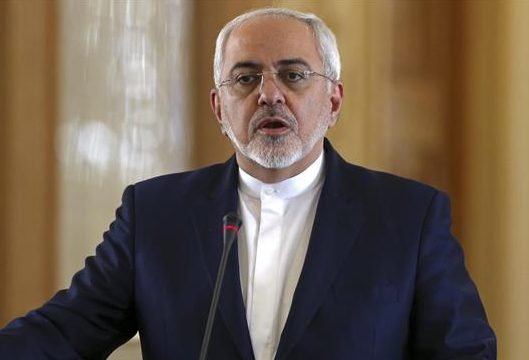In a Monday speech at the Taribiat Modares University in Tehran, Zarif touched upon the fact that the Islamic Republic relies on its own capacities and resources for its development, security, and legitimacy, and is capable of increasing its power with reliance on domestic potentialities and resources.
Here are highlights of his remarks on the issue:
We live in a world littered with developments; a world where concepts and tools are not static. Back in the 19th century, they would speak of concepts such as the “absolute ruler.” There were rulers who had absolute sovereignty over people. But then came the transition period following the Cold War, and today the state of being a super power is no longer a determining factor in international relations, and governments are not the absolute determiners in international ties.
Rather, new non-state actors have emerged that used to be active in the economic domain, but now are operating in security and political fields. Some actors, like the Lebanese Hezbollah movement, have a positive performance, and some, like the ISIS, have a negative performance. Moreover, the diversity of tools of power used to be another determining factor in international relations. In other words, the quantity of munitions and military equipment was a yardstick against which to measure the power of a country. Later, economic power was added as another determining factor.
Nevertheless, today other parameters have been added to the requirements of power for a country. And all these factors together increase a country’s leverage. Therefore, growing influence and dwindling vulnerability are among the factors which determine a country’s power.
The regional powers have an outward look in order to gain legitimacy, security or both. At the moment, these countries are either supported by a foreign country or expect to receive such backing. The progress and security of these countries depends on foreign states. However, what makes Iran stand out from the rest in the region is that it, firstly, has people who highly value independence, and secondly, as the country has always been under threats by foreign states since the 1979 Islamic Revolution, it relies on domestic potential.
Iran relies on local resources for development, and looks to its own people for its legitimacy and security. So, Iran is capable of increasing its power with reliance on domestic potentialities and resources.
In transitional periods, usually they speak of the time when countries would emerge or be annihilated. In other words, some countries come into or go out of existence during specific periods of time, such as former Yugoslavia which is non-existent in today’s world. So a precise calculation of the time situation would determine the path on which a country is to move ahead. Therefore, countries such as Iraq under Saddam Hussein, Libya under Muammar Qaddafi, and the division of Sudan into northern and southern parts are a few examples in the current era. In fact those countries are no longer high-profile states because their leaders had gone to extremes in their policies.
